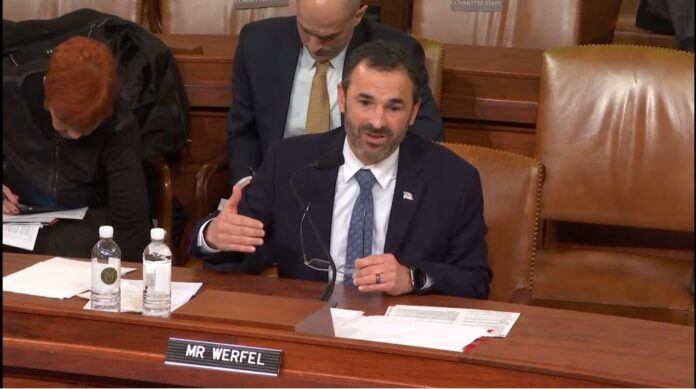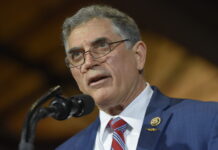
WASHINGTON (States Newsroom) — Internal Revenue Service Commissioner Danny Werfel told lawmakers on Capitol Hill Thursday that his agency is “poised to move quickly” on a bipartisan tax bill that would temporarily expand the child tax credit and revive several corporate tax breaks.
But, he cautioned, taxpayers should not wait to file.
The Tax Relief for American Families and Workers Act received overwhelming support in the U.S. House last month in a 357-70 vote and is now in the hands of the Senate, which has taken no action yet.
Werfel testified before the tax-writing U.S. House Committee on Ways and Means, where lawmakers asked for his guarantee that, if enacted, taxpayers would see the benefits of the new law this filing season.
The IRS is “paying close attention” to the legislation’s progress, the commissioner told the lawmakers.
“We may be able to start implementations (as) early as six to 12 weeks after passage, depending on the bill’s final language, but taxpayers should not wait for this legislation to file their returns. We will take care of getting any additional refunds to taxpayers who have already filed. They won’t need to take additional steps,” Werfel said in his opening remarks.
If passed, the legislation would expand the child tax credit by incrementally raising the refundable portion cap — meaning how much families could see in a refund check — from $1,800 to $1,900 to $2,000 each tax year from 2023 to 2025.
In the realm of corporate tax cuts, the bill would extend several provisions from the 2017 tax law, many of which are winding down or have expired. Among them are reinstating full expensing for domestic research and development costs, allowing 100% bonus depreciation for equipment purchases and speeding up the time frame for certain business deductions.
No need for amended returns
During his questioning, Committee Chair Jason Smith, a Missouri Republican, asked Werfel to affirm that the IRS could handle the new changes with minimal disruption to the 2023 filing season.
“We worked with your team to make sure the bill did not place a new burden on taxpayers and can be implemented without delay. Can you confirm that taxpayers do not need to file amended returns to obtain the adjustments the bill makes, further speeding things up?” Smith asked.
“Yes,” Werfel answered.
Both Smith and Werfel compared the workload to the swift system-wide adjustments the IRS had to make when the government issued stimulus checks and monthly child tax credit installments to taxpayers during pandemic relief efforts.
“The number of taxpayers affected here is a fraction of those affected in those other programs. Given that, can you confirm the administrative adjustments needed to implement the tax relief for (the) American Families and Workers Act are a much lighter lift for the IRS than for those other programs?” Smith asked.
“Yes,” Werfel said. “And Mr. Chairman, the work that we did to implement the payments that you referred (to), allowed us to build additional capacity to make us even more ready for this change.”
Werfel was sworn in as the 50th commissioner of the IRS in March. His term runs until 2027.
Status in the Senate
The bill’s fate in the Senate remains unclear.
Senate Republicans, including Mike Crapo of Idaho, ranking member of the Senate Committee on Finance, are taking issue with a child tax credit “look-back” provision for fear that it would decrease the program’s work incentives.
The provision would allow taxpayers to calculate their credit based on either this year’s or the previous year’s annual income, depending on which is higher.
Experts see the option as a safeguard of the family’s child tax credit against a sudden job loss, health issue or other situations that could interrupt steady work.
Senate Finance Committee Chair Ron Wyden of Oregon wants to “move as quickly as possible” on the bill, spokesman Ryan Carey told States Newsroom this month.
As of Feb. 11, no decisions had been made on a committee markup of the bill.







